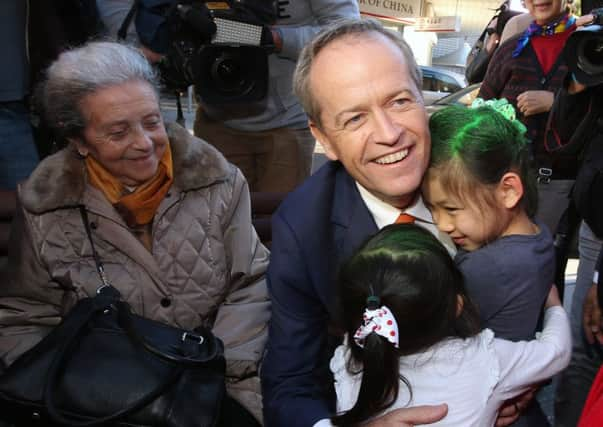Australia's opposition leader bids to become fifth PM in three years


Global market turmoil since the Brexit vote, Australia’s success in turning back asylum seeker boats, gay marriage, housing prices, corporate tax rates and union corruption have been major issues in the eight-week campaign.
Prime minister Malcolm Turnbull has urged Australians to vote for continuity and stability by re-electing his conservative coalition which dumped the country’s last PM less than a year ago.
Advertisement
Hide AdAdvertisement
Hide AdOpposition leader Bill Shorten, who played a key role in his centre-left Labor Party ousting two of its own prime ministers in the space of three years, says the government remains deeply divided and that Labor is the stable option.
“Mr Turnbull says this is the time for stability. You cannot have stability without unity,” Shorten said this week.
Polling suggests that Labor will gain some seats in the election, but not the 21 needed to form a majority government in the 150-seat House of Representatives. Labor holds 55 seats, the coalition 90 and five seats are held by minor parties or independents.
The government has promised to generate jobs and economic growth through tax cuts to big business, while Labor says it will keep the higher tax rates and use the revenue to better fund schools and hospitals.
There has been little change in opinion polls during the eight-week election campaign, and some observers say uninterested voters have switched off.
Deakin University political expert Geoff Robinson said both sides have been campaigning on their traditional strengths – the conservatives regarded as better economic managers and Labor more generous on health and schools.
Mr Robinson said although Mr Turnbull had disappointed many who had hoped for more progressive leadership since he replaced the socially conservative and polarising Tony Abbott as prime minister in September, the public mood was to give Mr Turnbull more time.
“Although the initial burst of enthusiasm for him wore off fairly quickly, people don’t actively dislike him,” Mr Robinson said.
A television ad by the ruling Liberal Party reflected the possible mood of an electorate that did not love the government in its first term, but was not yet ready to toss it out.